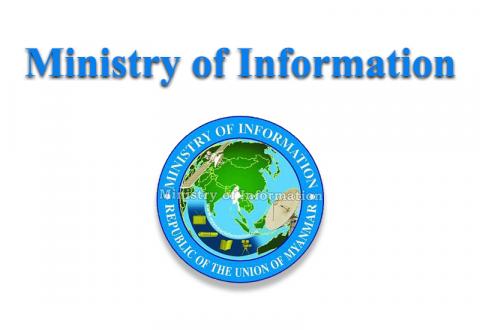Let’s Fill the Gaps
By Dr Zeyar Win
A CCORDING to the World Health Organization, every individual is entitled to quality healthcare. It is the responsibility of governments to lead and manage healthcare systems, ensuring public access to medical services that meet established standards. Whether in developed or developing nations, governments must take the initiative to implement healthcare policies that are tailored to the specific needs of their country and region.
Since Myanmar’s independence, the Department of Health has been established to ensure the systematic and efficient delivery of public healthcare services. The Ministry of Health has consistently followed the health policies of successive governments as a guiding framework, assuming the ongoing responsibility for public health initiatives. To address the need for qualified healthcare professionals, the Ministry has established medical universities and training schools, producing new generations of skilled health workers.
The Ministry of Health has set the goal of ensuring that all individuals can lead fulfilling lives free from disease. To achieve this, the Ministry focuses on preventive measures to reduce the occurrence of diseases. In cases where illness does arise, guidelines are established to provide effective healthcare management based on the country’s available resources. Comprehensive plans are continuously developed and implemented to support these objectives.
The state has taken responsibility for public healthcare, working to establish universities and academies to train medical professionals, construct hospitals and clinics, and provide essential medical equipment despite various limitations. However, significant challenges remain. When assessing healthcare infrastructure and human resources in relation to the size and population of townships, noticeable gaps still exist. Over the years, government officials have consistently sought to address and mitigate these challenges.
For a public hospital, it is crucial to maintain regular healthcare procedures to ensure continuous clinical management. When routine healthcare services are not fully provided, the public is often forced to seek treatment at private hospitals or clinics, leading to out-of-pocket expenses. This continuity of medical care in public hospitals is especially vital in areas where the population has limited access to alternative healthcare options. Thus, public hospitals are the primary and often sole source of medical services.
After 1 February 2021, public hospitals in Myanmar experienced significant disruptions in their operations. However, efforts were made to reorganize hospital management and staff members to restore normal functioning. Through timely and necessary support, consistent and equitable governance was established, allowing public hospitals to resume operations within a short period. The Ministry of Health also established hospital management committees and support committees at each hospital to streamline healthcare services and enhance hospital efficiency. Furthermore, public hospitals have ensured 24-hour emergency care while minimizing the costs of essential medica tions, diagnostic procedures, and treatment activities to alleviate the financial burden on patients.
Following the directive from the head of state that “every hospital must have a doctor at least,” efforts have been made to swiftly address doctor shortages, with the goal of providing quality medical care and ensuring the full operation of public hospitals. In line with national government guidelines, the Ministry of Health has overseen the direct appointment of medical graduates who have completed their internship training, effectively filling vacancies and enhancing the capacity of healthcare facilities.
On 31 July 2024, a total of 581 newly graduated doctors were appointed as civil service gazette officers, helping to address the demand for medical professionals in public healthcare to a moderate extent. Additionally, as of June 2024, more than a thousand medical graduates who passed the final Part B exams from various medical universities are currently serving as interns in teaching hospitals across the country. This effort further contributes to strengthening the healthcare workforce.
Doctors appointed directly as civil servants are committed to advancing their clinical practice and enhancing their proficiency in medical sciences to meet the operational needs of public hospitals. These doctors have been assigned to public hospitals under the guidance of senior specialists, which allows them to focus on their professional development while simultaneously addressing the healthcare needs of the state and the public. Consequently, these newly appointed doctors will have the opportunity to focus on their individual professional development while addressing the healthcare needs of both the state and the public.
As assistant doctors who have been appointed previously and have been working alongside senior doctors in public hospitals for a year or more, they are now set to be transferred to smaller public hospitals where there is a significant need for medical doctors. This transfer will be especially beneficial for improving healthcare access for residents in various regions enhancing overall public health.
In summary, we hope that civil service doctors will achieve a successful career by effectively balancing their professional responsibilities for their assigned duties. As reflected in the lyrics of Htoo Eainthin’s song:
“လူတွေအကုန်..ကျန်းမာရေး အတွက်.. ကွက်လပ်ဖြည့်လိုက်ပေါ့ ကွယ်.. ကျေးလက်က ဒေါက်တာ သူငယ်ချင်းရယ်.. စိတ်ဓာတ်ကလေး ဖြူစင် သန့်ရှင်းတယ်... အားလုံး အတွက် တာဝန်တွေထမ်းဆောင်မယ့်... မင်းတို့အတွက်ဂုဏ်ယူလိုက်ပါတယ်”
“we are pleased and proud to see them filling the gaps in healthcare services needed by our nation and its people.”
#TheGlobalNewLightOfMyanmar

